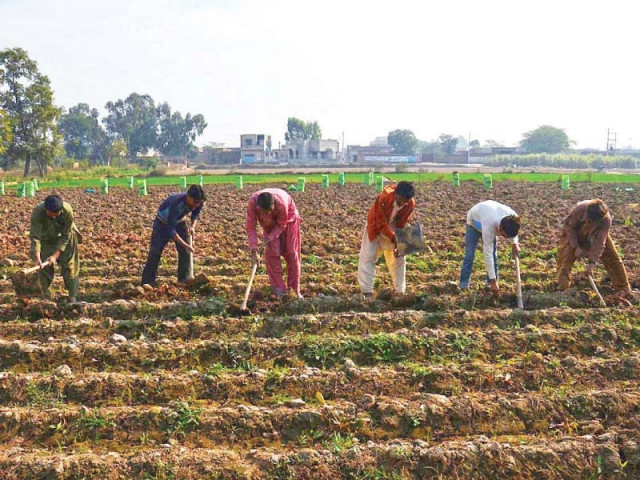Government adopts ‘bottom-up’ approach
Has launched scheme to provide interest-free loans to 4m people to help them start business

People at the bottom of income pyramid have been waiting for the past 70 years to enjoy the benefit of economic growth in Pakistan but the trickle-down effect has not been seen because of inconsistent and unsustainable growth over decades, said Finance Adviser Shaukat Tarin.
Speaking at the CFA Society Pakistan’s 18th Annual Awards ceremony on Friday, he said that the Pakistan Tehreek-e-Insaf (PTI) government had adopted a bottom-up approach to include everyone in the growth trajectory instead of keeping them away from the trickle-down effect.
“US President Joe Biden is also trying to do this in his country,” he remarked.
To implement the bottom-up approach, Pakistan’s government has launched a scheme to provide interest-free loans to four million people to help them start business. These are people who lie at the bottom of the income pyramid.
“We are going to target four million people from the lower section of our income pyramid,” he said. “We will offer interest-free agricultural and business loans and low-interest housing loans.”
He added that the government would also impart technical training and offer health insurance.
The four million people will receive close to Rs1.4 trillion in interest-free financing over the next four years.
According to him, large banks will offer wholesale financing to the non-banking financial institutions (NBFIs), microfinance banks (MFBs) and non-governmental organisations (NGOs), which will then extend loans to the four million people.
“This is how the government is going to deliver. The good news is that within a month of the launch of the loan programme, around 820,000 people have applied for borrowing,” he said.
Out of the 820,000 applications, around 215,000-220,000 have been approved.
He added that loans were being given to people in Khyber-Pakhtunkhwa (K-P), Balochistan, Azad Jammu and Kashmir, Gilgit-Baltistan and five cities of Punjab and Sindh.
He stressed that to make everyone part of the growth journey, “we have to make our financial system responsible to meet needs of our economy.”
The country’s financial sector is equal to only 33% of gross domestic product (GDP) and lending is only 15% of GDP. Advance-to-deposit ratio (ADR) - credit to the private sector - stands at 42%.
Nearly 85% of the credit is spent in nine cities and 75% of it is spent on the corporate side. “So it (financial sector) is dysfunctional. We have to fix it,” Tarin said.
“We also have to pay attention to the loss-making state-owned enterprises (SOEs). Fifteen of them are losing around Rs500 billion (a year). We are losing 1% of GDP,” he said.
Published in The Express Tribune, November 7th, 2021.
Like Business on Facebook, follow @TribuneBiz on Twitter to stay informed and join in the conversation.



















COMMENTS
Comments are moderated and generally will be posted if they are on-topic and not abusive.
For more information, please see our Comments FAQ